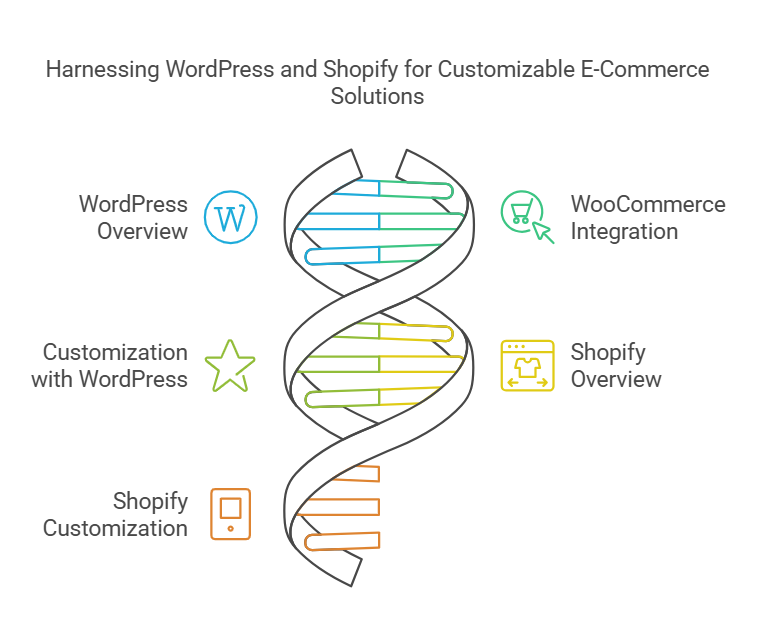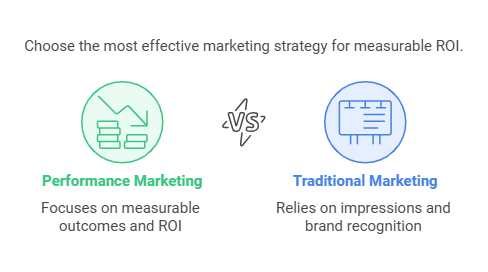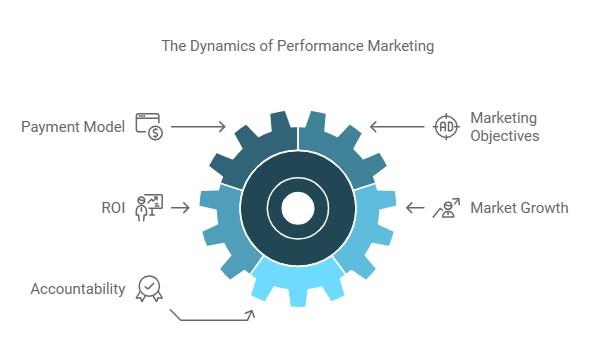WordPress vs. Shopify: Which Platform is Right for You?
Shopify and WordPress (with WooCommerce) are two of the most highly utilized solutions. Every platform has its own benefits, drawbacks, and some unique features. We’ll discuss all the major differences between Shopify and WordPress in this blog to help you in choosing the platform that is a better fit for your company’s unique requirements.
What is WordPress?
More than 40% of all websites on the internet are totally powered by WordPress, an open-source content management system (CMS). WordPress is quite an effective tool for building very adaptable online stores when combined with a well-known e-commerce software “WooCommerce”.
Businesses can create highly customized websites that meet their functional and branding needs by majorly using WordPress website development services.
What is Shopify?
The all-in-one e-commerce platform Shopify was created specially for the small businesses. Without the need for high technical expertise, it highly streamlines the process of creating, running, and growing an online plat form. Using Shopify app development and the other specialized tools, businesses may add quite unique features to their Shopify stores

Key Differences Between WordPress and Shopify
1. Ease of Use
WordPress
WordPress has a higher learning curve, but it still offers unmatched flexibility. The basic understanding of WordPress design and development also including programming and hosting, is quite necessary when developing an online store with WooCommerce.
Shopify
Shopify’s highly user-friendly interface makes it suitable for people with very little technical knowledge. The platform handles almost everything, from hosting to setting up links for Shopify custom app installs, which makes it a very excellent option for new store owners.
2. Customization Options
WordPress
The customization options with WordPress are almost endless. Businesses may incorporate third-party technologies, add custom plugins, and create original themes using WordPress development services. WooCommerce adds further functionality with options for advanced shipping, payment gateways, and personalized product pages.
Shopify
Shopify offers a range of themes and apps to extend functionality. Although there are fewer customization choices than with WordPress, expert Shopify developers can create unique features to meet certain business requirements.
3. Cost
WordPress
WordPress can be used for free, but depending on hosting, premium themes, plugins, and expert WooCommerce development services, expenses can mount up. For companies with different budgets, this makes it a flexible choice.
Shopify
Shopify operates on a subscription model, with plans starting at $29 per month. Additional costs may arise from premium apps, transaction fees, and development Shopify services. While predictable, the pricing can be higher than WordPress for businesses requiring extensive customizations.
4. SEO and Marketing Tools
WordPress
WordPress is quite effective at content marketing and search engine optimization (SEO). It provides a selection of plugins, such as Rank Math and Yoast SEO, that facilitate blog and product page optimization.
Shopify
Although they are not as comprehensive as WordPress, Shopify also has SEO tools. Nevertheless, Shopify’s integrated marketing features, such social media integrations and email campaigns, are easy to utilize even for beginners.
5. Scalability
WordPress
With the correct hosting and support for WordPress design and development, WordPress may grow significantly. It’s an excellent choice for businesses expecting to grow and requiring complex functionality.
Shopify
Shopify offers programs that suit companies of all sizes and is identically scalable. The infrastructure of the platform is built to withstand high traffic volumes, guaranteeing dependable operation as your store grows.
When to Choose WordPress
WordPress is ideal for businesses that:
- Require extensive customization through WordPress website development services.
- Have a dedicated team or professional support for managing the technical aspects.
- Need robust blogging and content marketing tools.
- I want complete control over hosting and data.
When to Choose Shopify
Shopify is best for businesses that:
- Prioritize ease of use and quick setup.
- Lack technical expertise or resources for managing hosting and maintenance.
- Need built-in tools for payments, shipping, and marketing.
- Plan to rely on Shopify app development for enhanced functionality.
Real-World Examples
WordPress Use Case
A niche retailer looking to create a highly customized online store with unique features might choose WordPress with WooCommerce. By leveraging WooCommerce development services, they can tailor every aspect of their store to align with their brand.
Shopify Use Case
Shopify’s user-friendly interface and Shopify custom app install link functionality can be attractive to a small business owner starting their first online store. The platform’s comprehensive strategy reduces technical hurdles so they may concentrate on expansion.
Conclusion
Both Shopify and WordPress have advantages, and the decision ultimately comes down to your financial constraints, technical expertise, and business objectives. WordPress with WooCommerce is a very strong choice for companies looking for high scalability and flexibility, and WordPress website development services always support it. However, on the contrary, Shopify is quite a fantastic option for individuals seeking a hassle-free solution due to its highly comprehensive features and ease of use.
To make an informed decision , carefully analyze your needs and think about engaging with expert Shopify developers or WordPress.
Shopify


